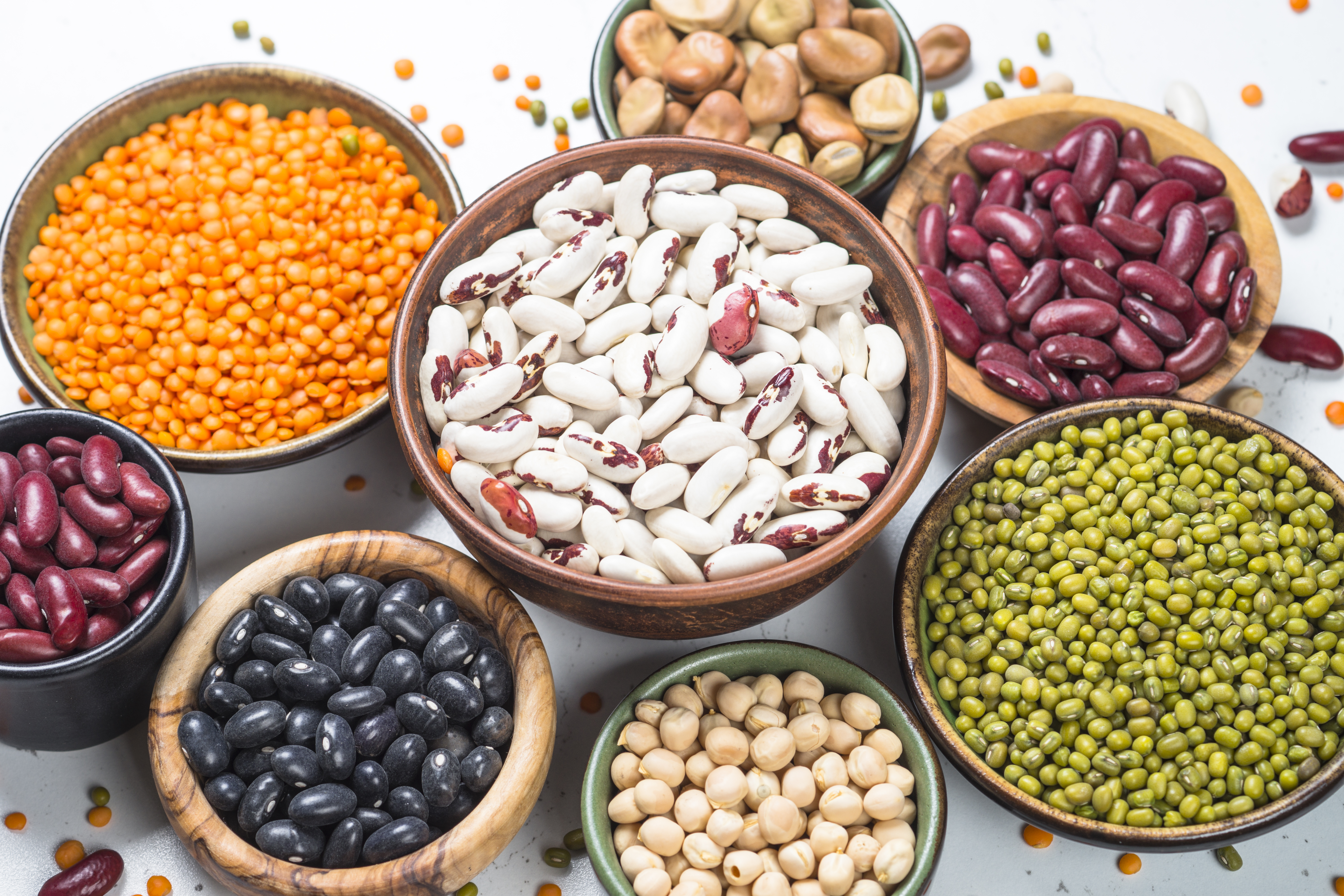Longevity Secrets Your Dietitian Wants You to Know for a Healthy Heart
In the quest for a longer, healthier life, the heart plays a pivotal role. As the engine of our bodies, its health directly impacts our overall well-being and longevity. Dietitians, with their expertise in nutrition and health, emphasize the importance of dietary choices in promoting heart health. This article delves into the secrets your dietitian wants you to know to maintain a healthy heart and extend your lifespan. From understanding the role of specific nutrients to embracing lifestyle changes, these insights offer a comprehensive guide to nurturing your heart through mindful eating.
The Power of Omega-3 Fatty Acids

Omega-3 fatty acids, primarily found in fatty fish like salmon, mackerel, and sardines, are crucial for heart health. These essential fats help reduce inflammation, lower triglyceride levels, and decrease the risk of arrhythmias. Dietitians recommend incorporating omega-3-rich foods into your diet at least twice a week. Additionally, plant-based sources like flaxseeds, chia seeds, and walnuts provide alpha-linolenic acid (ALA), a type of omega-3 that supports heart health. By prioritizing these foods, you can harness the protective benefits of omega-3s, promoting longevity and reducing cardiovascular risks.
Fiber: The Unsung Hero

Dietary fiber, particularly soluble fiber, plays a significant role in heart health by helping to lower cholesterol levels. Found in foods like oats, beans, lentils, and fruits, fiber binds to cholesterol particles, preventing their absorption into the bloodstream. This process reduces the risk of developing plaque in the arteries, a major contributor to heart disease. Dietitians recommend consuming at least 25 to 30 grams of fiber daily to support cardiovascular health. By making fiber-rich foods a staple in your diet, you can enhance heart function and reduce the risk of heart-related ailments.
The Antioxidant Advantage

Antioxidants, found abundantly in fruits and vegetables, protect the heart by neutralizing free radicals that can cause oxidative stress and damage cells. Dietitians emphasize the importance of a colorful diet rich in antioxidants like vitamin C, vitamin E, and flavonoids. Berries, citrus fruits, leafy greens, and nuts are excellent sources. These nutrients not only support heart health but also improve overall body function, contributing to a longer, healthier life. By prioritizing antioxidant-rich foods, you can safeguard your heart against damage and promote longevity.
The Role of Plant Sterols

Plant sterols are naturally occurring compounds found in small amounts in many plant-based foods. They are structurally similar to cholesterol and compete with it for absorption in the digestive system, effectively lowering LDL cholesterol levels. Foods fortified with plant sterols, such as certain margarines, orange juice, and yogurt drinks, can significantly reduce cholesterol when consumed regularly. Dietitians suggest incorporating these fortified foods into a balanced diet to enhance heart health. By understanding and utilizing plant sterols, you can take proactive steps to protect your heart and extend your lifespan.
The Benefits of Whole Grains

Whole grains, such as brown rice, quinoa, barley, and whole wheat, are rich in nutrients that support heart health. They contain fiber, B vitamins, and minerals like magnesium and iron, which collectively aid in reducing cholesterol levels and improving heart function. Dietitians recommend replacing refined grains with whole grains to maximize these health benefits. Whole grains also help regulate blood pressure and maintain healthy weight, both crucial factors in preventing heart disease. By embracing whole grains, you can support your cardiovascular system and enhance your longevity.
The Impact of Sodium Reduction

Excessive sodium intake is linked to high blood pressure, a major risk factor for heart disease. Dietitians advise limiting sodium consumption to less than 2,300 milligrams per day, with an ideal limit of 1,500 milligrams for those at risk of hypertension. This can be achieved by minimizing processed foods, opting for fresh ingredients, and using herbs and spices for flavoring instead of salt. By reducing sodium, you can prevent hypertension, protect your heart, and contribute to a longer, healthier life. Understanding sodium's impact empowers you to make heart-friendly dietary choices.
The Importance of Potassium

Potassium is a vital mineral that helps balance sodium levels in the body and supports heart health. Foods rich in potassium include bananas, oranges, potatoes, and spinach. Dietitians highlight the importance of maintaining a potassium-rich diet to manage blood pressure and reduce the risk of stroke. Potassium aids in relaxing blood vessels, promoting better blood flow, and reducing strain on the heart. By prioritizing potassium in your diet, you can enhance cardiovascular function and protect against heart disease, contributing to increased longevity.
The Role of Healthy Fats

Not all fats are created equal, and understanding the difference is crucial for heart health. Monounsaturated and polyunsaturated fats, found in olive oil, avocados, and nuts, are beneficial for the heart. These fats help reduce bad cholesterol levels and provide essential fatty acids that support heart function. Dietitians recommend replacing saturated and trans fats with healthier options to improve cholesterol profiles and reduce cardiovascular risks. By incorporating healthy fats into your diet, you can support heart health and promote a longer, more vibrant life.
The Influence of Alcohol Moderation

Moderate alcohol consumption has been associated with certain heart health benefits, such as raising HDL (good) cholesterol levels and reducing clot formation. However, excessive drinking can lead to high blood pressure, heart failure, and other serious health issues. Dietitians suggest limiting alcohol intake to one drink per day for women and two for men. This moderation helps balance potential benefits with risks, supporting heart health and longevity. Understanding the role of alcohol in your diet allows you to make informed decisions that protect your heart.
The Connection Between Sugar and Heart Health

High sugar intake is linked to obesity, inflammation, and increased heart disease risk. Dietitians recommend minimizing added sugars found in processed foods, sugary drinks, and desserts to protect heart health. Instead, focus on natural sugars from fruits and whole foods that provide essential nutrients without the negative impact on blood sugar levels. By reducing sugar consumption, you can maintain a healthy weight, lower cholesterol, and decrease the risk of developing heart disease. This conscious approach to sugar helps support a healthy heart and promotes longevity.
The Significance of Regular Meals

Eating regular, balanced meals helps maintain stable blood sugar levels and supports heart health. Skipping meals or irregular eating patterns can lead to overeating and poor food choices, increasing the risk of heart disease. Dietitians emphasize the importance of structured meal times that include a variety of nutrients. This approach helps regulate metabolism, manage weight, and provide consistent energy levels. By prioritizing regular, nutritious meals, you can support cardiovascular health and contribute to a longer, healthier life.
The Benefits of Hydration

Adequate hydration is essential for maintaining heart health, as it helps regulate blood volume and supports efficient circulation. Dietitians recommend drinking at least eight glasses of water a day, with increased intake during physical activity or hot weather. Proper hydration aids in nutrient transportation, temperature regulation, and waste removal, all crucial for heart function. By prioritizing hydration, you can enhance cardiovascular health and promote overall well-being, contributing to increased longevity.
The Role of Mindful Eating

Mindful eating involves paying attention to hunger cues, savoring meals, and making conscious food choices. This practice helps prevent overeating and promotes a healthier relationship with food. Dietitians encourage mindful eating to support heart health by reducing stress and emotional eating, both of which can negatively impact the heart. By focusing on the quality and enjoyment of meals, you can make choices that benefit your heart and contribute to a longer, healthier life.
The Impact of Plant-Based Diets

Plant-based diets, rich in fruits, vegetables, whole grains, and legumes, are associated with reduced heart disease risk. Dietitians highlight the benefits of plant-based eating patterns that provide essential nutrients, fiber, and antioxidants while minimizing saturated fats. These diets support heart health by lowering cholesterol, reducing inflammation, and maintaining healthy blood pressure levels. By embracing a plant-based approach, you can support your cardiovascular system and enhance your longevity.
The Importance of Portion Control

Portion control is crucial for maintaining a healthy weight and preventing heart disease. Overeating, even healthy foods, can lead to weight gain and increased cardiovascular risk. Dietitians recommend being mindful of portion sizes and using tools like measuring cups or portion plates to avoid excessive intake. By practicing portion control, you can manage calorie consumption, support heart health, and contribute to a longer, healthier life.
The Power of Phytochemicals

Beyond the classic antioxidants, a dietitian will tell you about the powerful, protective role of phytochemicals. These are natural compounds in plants that give them their vibrant colors, like the deep red in tomatoes or the purple in grapes. They don't just protect the plant—they protect your heart, too. For instance, quercetin, found in apples and onions, has anti-inflammatory effects that can help prevent arterial damage. Similarly, resveratrol in red grapes and berries helps improve blood vessel function. Focusing on a "rainbow plate" means you're not just eating a salad; you're actively consuming compounds that guard your cardiovascular system from a cellular level, contributing to a truly resilient heart.
Understanding the Glycemic Index

The glycemic index (GI) isn’t just for managing blood sugar; it’s a key tool for heart health. Dietitians know that foods with a high GI cause rapid blood sugar spikes, which can trigger inflammation and damage to your blood vessels over time. This makes your heart work harder and can contribute to arterial plaque buildup. By choosing low-GI foods like legumes, steel-cut oats, and non-starchy vegetables, you can keep your blood sugar stable and reduce the inflammatory load on your cardiovascular system. This simple choice helps protect your heart from daily stressors, ensuring smoother blood flow and long-term health.
The Role of Magnesium

Often overshadowed by more common heart nutrients, magnesium is a silent but critical player in cardiovascular health. This mineral helps regulate blood pressure by relaxing blood vessels and is vital for maintaining a steady heartbeat. A deficiency can lead to an irregular heart rhythm and increased blood pressure. Dietitians would encourage you to get enough magnesium from foods like leafy greens, nuts, seeds, and whole grains. By ensuring an adequate intake, you're not just supporting your heart's structure; you're helping it function properly on a day-to-day basis, from regulating its rhythm to controlling your blood pressure.
Embracing Fermented Foods

A healthy gut biome is directly linked to a healthy heart, and dietitians are increasingly focused on this connection. Fermented foods like yogurt, kefir, sauerkraut, and kimchi are rich in probiotics, which support a balanced gut flora. A healthy gut can help reduce systemic inflammation and may even help lower cholesterol levels. When your gut is happy, it sends fewer inflammatory signals throughout your body, putting less stress on your cardiovascular system. Integrating these foods into your diet isn’t just about digestion; it’s about a comprehensive, inside-out approach to long-term heart resilience.
The Art of Mindful Seasoning

Your dietitian knows that the best way to cut back on salt isn't to make food bland—it's to become an expert in seasoning. Instead of reaching for the salt shaker, learn to use flavorful herbs and spices that add depth without the sodium. Garlic, oregano, basil, thyme, black pepper, and chili powder are all fantastic options that can enhance your meals. Some, like garlic, even have their own direct cardiovascular benefits, such as improving blood flow. This small but powerful habit transforms your cooking, making it both more delicious and more heart-healthy, turning a necessity into an enjoyable, health-conscious practice.
A Heart-Healthy Path to Longevity

Embracing a heart-healthy diet is a powerful step towards longevity. By understanding and implementing these dietary secrets, you can protect your heart and enhance your overall well-being. From prioritizing omega-3s and fiber to embracing plant-based diets and mindful eating, each choice contributes to a healthier heart and a longer life. Dietitians provide invaluable guidance in navigating these choices, empowering you to make informed decisions for your heart health and longevity. By adopting these practices, you embark on a path to a vibrant, heart-healthy future.
